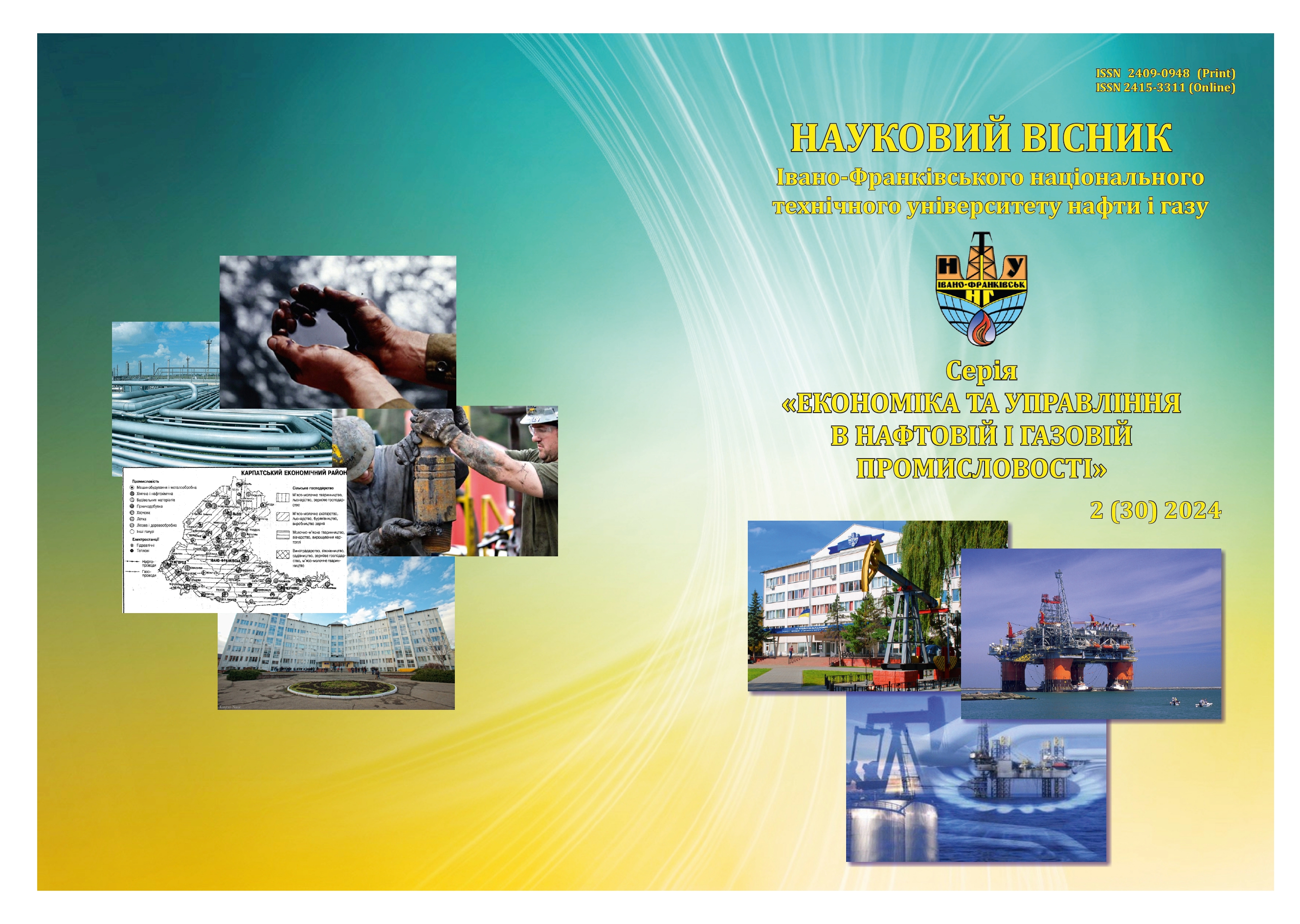METHODOLOGY FOR RESEARCHING THE INCLUSIVENESS OF HIGHER EDUCATION
DOI:
https://doi.org/10.31471/2409-0948-2024-2(30)-118-125Keywords:
inclusion, education, higher education, inclusive environment, people with special needs.Abstract
The article deals with the concepts of inclusion, inclusive environment, and inclusive education. It is substantiated that ensuring the inclusiveness of higher education is relevant both from the point of view of sustainable development of the higher education system and from the point of view of meeting the requirements of the present due to the war. The process of forming the legal and regulatory framework for an inclusive environment in higher education, from the ratification of the relevant UN Convention to the Strategy for the Development of Inclusive Education in Ukraine, is studied, which allowed to identify the problems that exist today in the field of education. It has been established that today the country's legislation does not cover all categories of persons with special needs.
There are also a number of problems in creating access conditions for people with special needs, applying appropriate types, forms and methods of education, taking into account individual needs and capabilities, creating individual development and training programs, ensuring the participation of psychological services in the education and life of people with special needs, etc. We believe that the primary task is to research and formulate a regulatory, legal, methodological, educational, informational, and logistical environment at the level of higher education institutions to meet the requirements of inclusiveness.
The methodological foundations of the study of the inclusiveness of higher education are proposed, starting with the formulation of problems, goals, principles and objectives of the study; clarification of the concepts of “inclusion of higher education”, “inclusive environment”; formation of categories of persons with special needs, groups of stakeholders; formation of indicators for assessing the level of inclusiveness of higher education, research methods.
We believe that it is the application of a scientific approach to the formation of inclusive higher education that can ensure the creation of new theoretical knowledge and practical solutions to increase the level of barrier-free access to higher education for people with special needs and maximize the results of their education.
References
Konventsiia pro prava osib z invalidnistiu. Data nabrannia chynnosti dlia Ukrainy 06.03.2010 r. URL: https://zakon.rada.gov.ua/laws/show/995_g71#Text.
Zakon Ukrainy «Pro osvitu», 2145- VIII vid 18.12.2018 r. URL: https://zakon.rada.gov.ua/laws/show/2145-19#Text.
Zakon Ukrainy «Pro vyshchu osvitu» 1556-VII vid 28.12.2014. URL: https://zakon.rada.gov.ua/laws/show/1556-18#Text.
Postanovoiu Kabinetu Ministriv Ukrainy «Pro zatverdzhennia Poriadku orhanizatsii inkliuzyvnoho navchannia u zakladakh vyshchoi osvity» №635 vid 10.07.2016 r. URL: https://zakon.rada.gov.ua/laws/show/635-2019-%D0%BF#Text.
Natsionalnoi stratehii iz stvorennia bezbariernoho prostoru v Ukraini na period do 2030 roku (rozporiadzhennia Kabinetu Ministriv Ukrainy vid 14 kvitnia 2021 r. № 366-r. URL: https://zakon.rada.gov.ua/laws/show/366-2021-%D1%80#Text).
Natsionalna stratehiia rozvytku inkliuzyvnoho navchannia na period do 2029 roku. Rozporiadzhennia Kabinetu Ministriv Ukrainy vid 7 chervnia 2024 r. № 527-r. URL: https://zakon.rada.gov.ua/laws/show/527-2024-%D1%80#Text.
Sherstiuk R., Stoiko I., Maliuta L. Inkliuzyvna osvita u zakladi vyshchoi osvity: realii y mozhlyvosti navchannia veteraniv viiny z osoblyvymy potrebamy. Halytskyi ekonomichnyi visnyk, № 1 (86) 2024. URL: https://doi.org/10.33108/galicianvisnyk_tntu2024.01.
Vyshcha osvita v Ukraini: zminy cherez viinu: analitychnyi zvit / Ye. Nikolaiev, H. Rii, I. Shemelynets. Kyiv: Kyivskyi universytet imeni Borysa Hrinchenka, 2023. 94 s. URL: https://osvitanalityka.kubg.edu.ua/wp-content/uploads/2023/03/HigherEd-in-Times-of-War.pdf.
Maslianikova I., Herasymenko Yu. Osoblyvosti inkliuzyvnoho pidkhodu shchodo pidhotovky navchalnykh zaniat dlia zdobuvachiv vyshchoi osvity z OOP na prykladi universytetu «Ukraina». July 2023. Actual Problems in the System of Education General Secondary Education Institution – Pre-University Training – Higher Education Institution. DOI:10.18372/2786-5487.1.17725.
Vyshcha osvita Ukrainy v umovakh voiennoho stanu ta pisliavoiennoho vidnovlennia: vyklyky i vidpovidi: naukovo-analitychna dopovid. V.H. Kremen, V.I. Luhovyi, P.Iu. Saukh, I.I. Drach, O.M. Sliusarenko, Yu.A. Skyba, O.V. Zhabenko, S.A. Kalashnikova, Zh.V. Talanova, O.M. Petroie, O.Iu. Orzhel, I.Iu. Reheilo, M.V. Nabok; za zah. red. V.H. Kremenia. Kyiv: Pedahohichna dumka, 2023. 172 s. DOI: https://doi.org/10.37472/NAES-IHED-2023 ISBN 978-966-644-752-7.
Tsymbaliuk S. O. Teoretyko-prykladni zasady doslidzhennia sotsialnoi inkliuzii u vyshchii osviti. Osvitnia analityka Ukrainy. №4(30). 2024. S. 113-126. DOI: 10.32987/2617-8532-2024-4-113-126.
Vprovadzhuiemo inkliuziiu u zakladi osvity. Derzhavna sluzhba yakosti osvity Ukrainy. URL: https://sqe.gov.ua/wp-content/uploads/2023/09/Inclusion_zaklad_osvity_SQE-SURGe_2023.pdf.
Downloads
Published
How to Cite
Issue
Section
License
Copyright and Licensing Terms
Copyright Statement
The authors who publish in the journal accept the following conditions:
- The authors retain the copyright and grant the journal the right of first publication, licensed with Creative CommonsCC BY-NC-SA , which permits other people to remix, transform, and build upon the material and use the material for non-commercial purposes, give appropriate credit and distribute the contributions under the same license as the original.
- The authors can conclude additional agreements on the non-exclusive distribution of the journal’s published version of the work (for example, publication of the work in electronic repositories) with an acknowledgment of its initial publication in this journal.
- The authors can upload the published articles on the Internet (for example, in electronic repositories or on web-sites), as it will stimulate fruitful scholarly discussions and increase the citation rates of the published articles.


1.png)


1.png)





